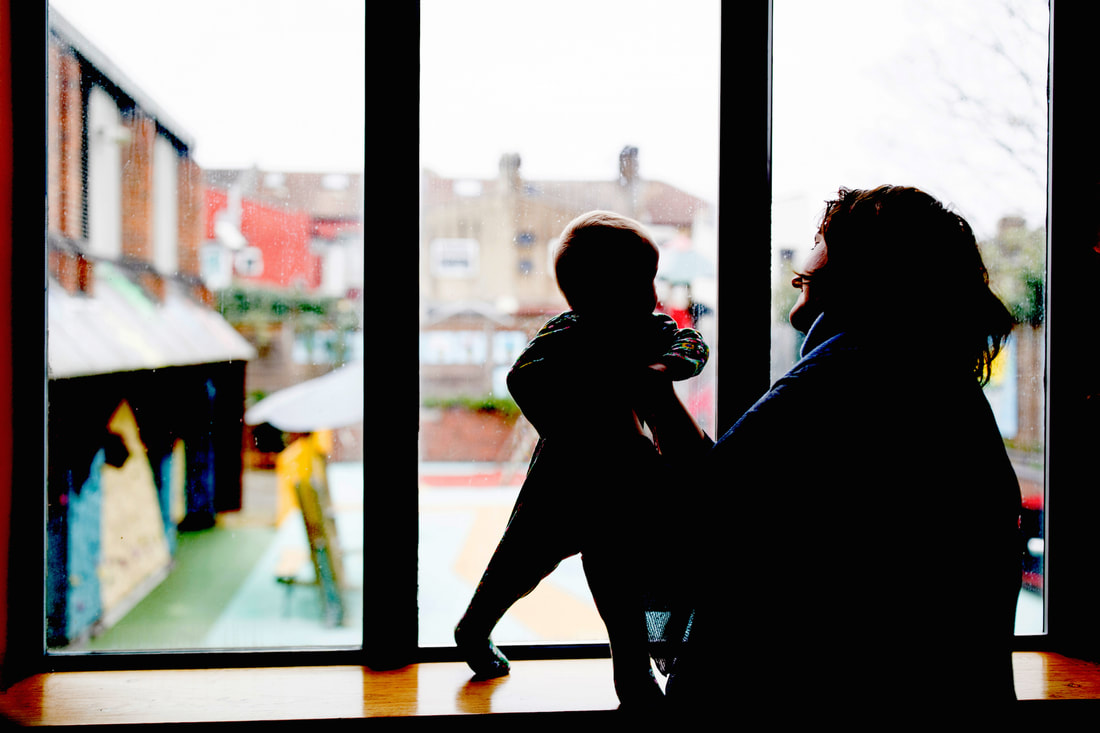|
Concerned about the number of children living in squalid conditions in temporary accommodation, Jane Williams decided to do something about it. A year on, she has some learning to share with service providers Photo: Teri Pengilley for the Guardian
Jane Williams Tonight A will attempt to get a good night’s sleep sharing a double bed with her 18-month-old twins and her grandmother F will watch her 2-year-old daughter, already traumatised by domestic violence, kept awake and cowering by the shouts of drug users and drunks outside her door in B&B accommodation L will listen to her 3-year-old wheezing again because the window by her bed is cracked and mould on the wall is growing faster than she can clean it off. The doctor wants to charge £65 to write a letter confirming that her wheezing is made worse by the poor housing *** In December 2017, there were 1,994 under-fives living in temporary accommodation in the London borough of Newham. This number represents a need that is never-ending. It is refreshed weekly with the churn of new families being housed in Newham while others are moved away. I am able to give you a number thanks to a FOI request made by a newspaper. I’m not sure what the most up to date figure is as there is no agency that keeps track of the under-fives swilling from borough to borough, effectively homeless. I imagine it is likely to be about the same.
0 Comments
Social disadvantage and inequality tug at the very fabric of what makes society functional. It is time to reflect this in our conversation about mental ill health First published on 20/5/2018 by The Independent during Mental Health Awareness week. Republished here on World Mental Health Day (Photo by Tom Parsons on Unsplash)
Annabel Head and Jessica Bond In 2018, mental health and psychological distress are high on the agenda. And this is great progress. The increased awareness of mental health issues and the willingness to discuss them that we are currently seeing is vital. It keeps pressure on policymakers to fulfil their promise to put mental health on an equal footing with physical health. To really make a difference, though, we need to take the conversation to the next level – to raise a different kind of awareness that leads to a different kind of action. Awareness about the root causes of psychological distress. We need to spread the message that the society and communities we live in and the way they are organised by social, political and economic forces play a significant role in our wellbeing. We need that message to become part of the conversation around mental health so that the ideas are built into the heart of all of our society’s policies, not viewed as only relevant to NHS mental health services. The case for the role that social, economic and environmental factors play in mental health and distress is robust. Psychological distress (often categorised as “mental disorders” and other terms we, as psychologists, are not always comfortable with) is not distributed equally across society. People lower down the socioeconomic ladder suffer more mental distress than those higher up, with the gradient particularly pronounced for women. Inequality is also associated with poorer wellbeing for those at the sharp end. Multiple studies have shown a link between low socioeconomic position and increased rates of depression and anxiety. Debt and having a poor-quality job – such as those with zero-hour contracts or where there is little control or reward to be had – are risk factors for experiencing distress. Unemployment is associated with a higher risk of suicide. Similarly, poor quality or overcrowded housing is linked to poorer mental health in adults and is worse for children’s educational and health outcomes. Living in a neighbourhood blighted by violence or with a high crime rate is associated with trauma. Those experiencing oppression through living in communities in which there are high levels of racial inequality and discrimination are more likely to feel distressed. |
AuthorPSC is a network of people interested in applying psychology to generate social and political action. You don't have to be a member of PSC to contribute to the blog Archives
February 2022
Categories
All
|
PSYCHOLOGISTS FOR SOCIAL CHANGE
- Home
- About
-
Groups
- Blog
-
Position statements
- UK >
-
Cymru / Wales
>
- Consultation Responses
- Housing Support Funding
- Connecting the Dots Report
- Chemical Imbalance Myth
- Review of use of dx PD
- UK Inhumane Removal Plans
- WG LGBT+actionplan
- Ty Coryton
- Commission on Race and Ethnic Disparities: The Report
- ECT Review
- Black Lives Matter
- COVID 19 and Internet Access
- Save the T4CYP Programme
- Support the Mind over matter Report
- UN Report on Extreme Poverty in the UK Letter
- England >
- Ireland >
- Northern Ireland
- Scotland
-
Campaigns
- Join our mailing list


 RSS Feed
RSS Feed
